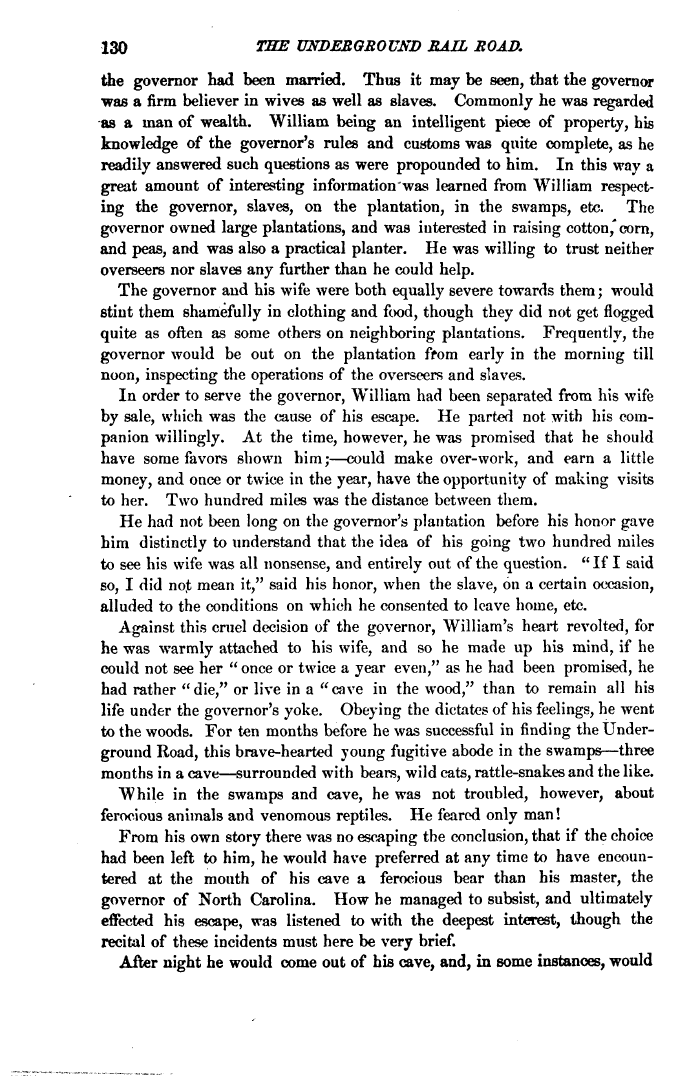 |
||||
 |
||||
| 130 THE UNDERGROUND RAIL ROAD. the governor had been married. Thus it may be seen, that the governor was a firm believer in wives as well as slaves. Commonly he was regarded as a man of wealth. William being an intelligent piece of property, his knowledge of the governor's rules and customs was quite complete, as he readily answered such questions as were propounded to him. In this way a great amount of interesting information'was learned from William respecting the governor, slaves, on the plantation, in the swamps, etc. The governor owned large plantations, and was interested in raising cotton,* corn, and peas, and was also a practical planter. He was willing to trust neither overseers nor slaves any further than he could help. The governor and his wife were both equally severe towards them; would stint them shamefully in clothing and food, though they did not get flogged quite as often as some others on neighboring plantations. Frequently, the governor would be out on the plantation ffom early in the morning till noon, inspecting the operations of the overseers and slaves. In order to serve the governor, William had been separated from his wife by sale, which was the cause of his escape. He parted not with his companion willingly. At the time, however, he was promised that he should have some favors shown him;—could make over-work, and earn a little money, and once or twice in the year, have the opportunity of making visits to her. Two hundred miles was the distance between them. He had not been long on the governor's plantation before his honor gave him distinctly to understand that the idea of his going two hundred miles to see his wife was all nonsense, and entirely out of the question. " If I said iso, I did noit mean it," said his honor, when the slave, on a certain occasion, alluded to the conditions on which he consented to leave home, etc. Against this cruel decision of the governor, William's heart revolted, for he was warmly attached to his wife, and so he made up his mind, if he could not see her " once or twice a year even," as he had been promised, he had rather "die," or live in a "cave in the wood," than to remain all his life under the governor's yoke. Obeying the dictates of his feelings, he went to the woods. For ten months before he was successful in finding the Underground Road, this brave-hearted young fugitive abode in the swamps—three months in a cave—surrounded with bears, wild cats, rattle-snakes and the like. While in the swamps and cave, he was not troubled, however, about ferocious animals and venomous reptiles. He feared only man! From his own story there was no escaping the conclusion, that if the choice had been left to him, he would have preferred at any time to have encountered at the mouth of his cave a ferocious bear than his master, the governor of North Carolina. How he managed to subsist, and ultimately effected his escape, was listened to with the deepest interest, though the recital of these incidents must here be very brief. After night be would come out of bis cave, and, in some instances, would |